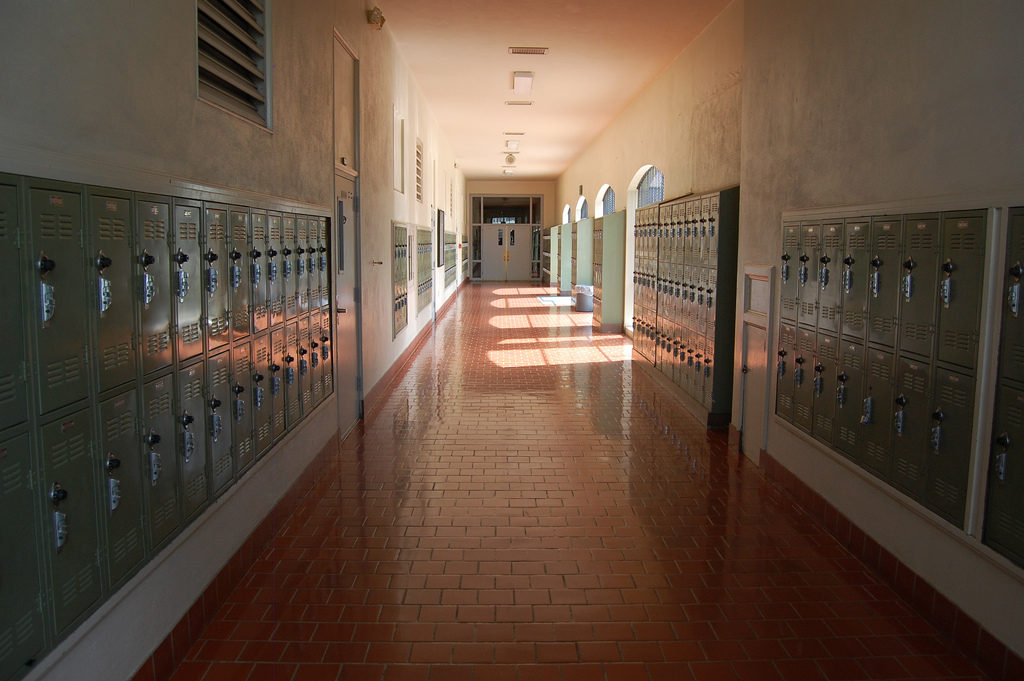Governor Ralph Northam (D) vetoed a bill on Tuesday that would allow for the creation of school protection officers to secure students, teachers, and faculty across the Commonwealth. Northam, however, said the bill would “not serve to make Virginia’s students and schools safer.”
H.B. 2142, introduced by Delegate Bob Thomas (R-Stafford), defines “school protection officers” as employees of a local law enforcement agency that would provide “limited law enforcement and security services” in public schools as part-time employees. Moreover, the legislation provides for the establishment of compulsory minimum training standards for school protection officers by the Department of Criminal Justice Services (DCJS), and that such training may be provided by the employing law enforcement agency and would be graduated based upon the duties performed.
In his veto memo the governor said, “Virginia law already provides for two types of officers to protect the safety of the Commonwealth’s students and schools: school resource officers and school security officers.”
“School resource officers and school security officers have well-defined duties and responsibilities set forth in the Code of Virginia and are required to meet stringent training standards that are administered uniformly through the DCJS certification process. In stark contrast, the bill neither delineates what duties school protection officers would be authorized to perform nor defines the ‘limited’ law enforcement services to be provided by school protection officers,” he stated.
Northam explained that DCJS would be given “the impossible task of developing training standards for an officer whose duties are undefined and could vary significantly depending on the employing local law enforcement agency,” and “not be subject to the same level of oversight as the training of school resource officers or school security officers.”
“Allowing a new type of officer with undefined duties and indeterminate training will not serve to make Virginia’s students and schools safer,” Northam said. “Therefore, there is no compelling reason to create school protection officers when Virginia law already provides for two types of trained officers to provide security in the Commonwealth’s schools.”
Delegate Thomas’ bill defined the two current positions of law enforcement officers in schools, as well as the creation of a third:
“School resource officer” means a certified law-enforcement officer hired by the local law-enforcement agency to provide law-enforcement and security services to Virginia public elementary and secondary schools.”
“School security officer” means an individual who is employed by the local school board for the singular purpose of maintaining order and discipline, preventing crime, investigating violations of school board policies, and detaining students violating the law or school board policies on school property or at school-sponsored events and who is responsible solely for ensuring the safety, security, and welfare of all students, faculty, staff, and visitors in the assigned school.”
“School protection officer” means a retired law-enforcement officer hired on a part-time basis by the local law-enforcement agency to provide limited law-enforcement and security services to Virginia public elementary and secondary schools.”
Last year, Stafford County Sheriff David Decatur promoted the idea of school protection officers in the area’s elementary schools. Stafford and most other area school divisions have school resource officers at all middle and high schools, but the mass shooting at Stoneman Marjory Douglas High School in Parkland, Florida, in February 2018 renewed a push for more protection for younger students.
Decatur explained that protection officers represent a less expensive alternative to school resource officers, which would cost nearly $1 million more to place in every elementary school, according to a report from the Free Lance-Star. School resource officers require more training and equipment than protection officers, but the sheriff emphasized that the protection officers would not be a “watered-down” deputy.
“It’s just a specifically trained school security deputy that will have the power to arrest,” Decatur said. “I just want to make it clear we’re not going to give schools any less than our best.”
Unlike typical deputies, he explained, protections officers would not need training and equipment related to car-accident investigations. Their primary duties would include patrolling schools, maintaining a “situational awareness” of visitors and activities at the school, intervening in “all perceived threats” to teachers, students, and visitors, training school employees on threat response, and holding exercises and drills to prepare for potential emergencies.
As well, they would carry a concealed firearm, but wear “low-profile clothing that would fit the elementary school environment,” a Sheriff’s Office report stated.
While the bill may have not been heavy on the details, it did show promise to provide for increased security in Virginia schools.

